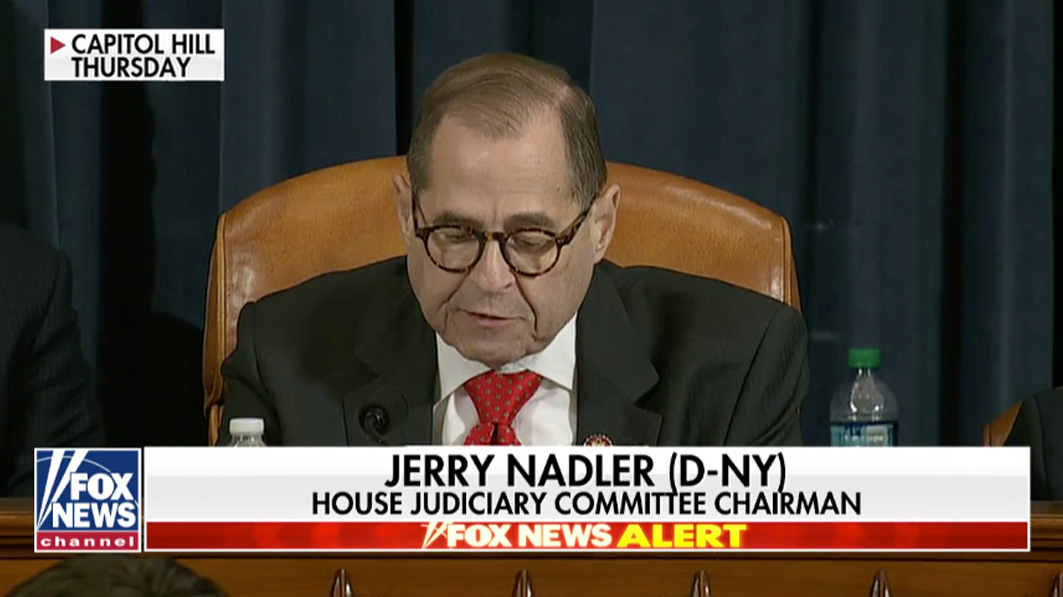Tempers flared Thursday evening in the U.S. House Judiciary Committee when Chairman Jerry Nadler (D-NY) suddenly ended debate just before midnight on the articles of impeachment and scheduled a vote for this morning without consulting his Republican counterpart.
Republican Ranking Member Doug Collins (R-GA) was incensed. He spoke up as Democrats rose to leave the hearing room. “Mr. Chairman, there was no consulting with the ranking member on your schedule for tomorrow. You just blew up schedules for everyone?” Collins continued, “You chose not to consult the ranking member on a scheduling issue of this magnitude? This is the kangaroo court we’re talking about.”
Republicans accused Nadler of manipulating the hearing so that the vote on the articles could take place in the morning in front of the media, ensuring it would dominate the news cycle. For their part, Democrats accused Republicans of dragging out the hearing so that the vote would take place in the middle of the night, enabling Republicans to paint the vote as being held in secrecy, away from the American public.
On Friday morning the Democrat-dominated committee acted quickly, approving the articles on a straight-line party vote of 23-17.
The articles, which outline two bases for impeachment, abuse of power and obstruction of Congress, relate to President Trump’s dealings with Ukraine over the summer.
The first charge, abuse of power, alleges that the president used the threat of withholding promised military aid to obtain a promise by the Ukrainian president to investigate a political rival, Joe Biden, hoping to influence the 2020 presidential election. The military aid was delayed briefly for a nonpolitical reason, and Ukraine never conducted the investigation the president requested.
Notable for its absence from this charge was any language of “bribery,” “extortion” and “quid pro quo” which apparently have been dropped. During the hearings it was revealed that Democrats had switched from “quid pro quo” as a potential charge to “bribery” after consulting with a focus group on which term might sound more severe to voters. There has been no reason given as to why “bribery” and “extortion” were omitted from the final draft of the articles.
The second charge, obstruction of Congress, relates to the White House resisting subpoenas from the Committee to produce documents and witnesses over the President’s claims of executive privilege. Such claims are far from unique in congressional investigations of the executive branch, but Democrats claim that the privilege is not available in impeachment proceedings.
The impeachment process now proceeds to the floor of the House where all members will vote on the articles next week. The Democrats have the numbers in the House to pass the resolution approving the articles even with expected defections from Democrats whose districts overwhelmingly voted for Trump.
The situation is far different in the Senate, however, where the impeachment trial will be held. Majority Leader Mitch McConnell forecasted that a couple Democrats might possibly vote against convicting the president in that chamber. A two-thirds vote in the Senate is necessary to convict, i.e. 67 votes. The current party split in the upper chamber is 53 Republicans, 45 Democrats and 2 Independents. The Constitution is vague on details of the Senate trial, so the process can take many different shapes.
The entire process may not be wrapped up until sometime early in the new year.
Photo from Fox News






